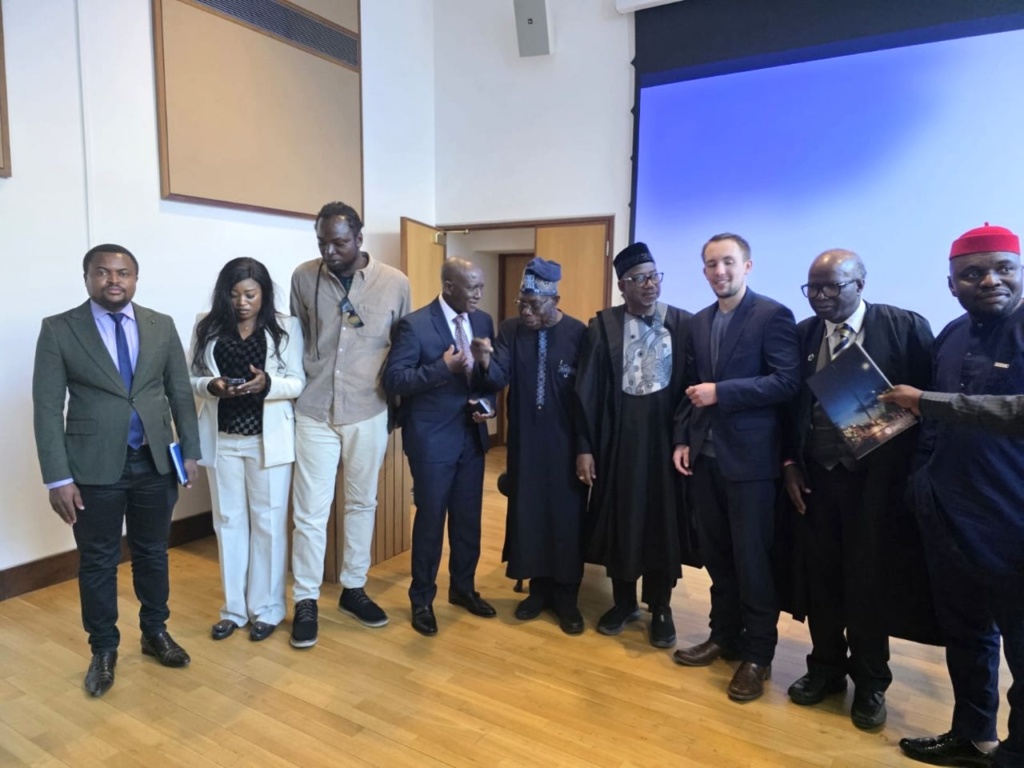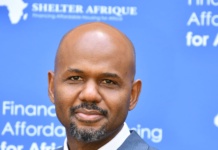
Mrs Rachel O. Ajayi, reviews how ECOWAS and West Africa’s great dream can survive a fractured period based on the keynote speech of HE Chief Olusegun Obasanjo, GCFR, Moderated by Ryan Cauwenberghs an Oxford scholar in African Studies and question of Professor Chris Imafidon, AI pioneer & world renowned Adviser to Monarchs, Presidents & corporate leaders (he supervised one of the first ever doctoral studies of the e-Government in Nigeria)
Last week, Oxford University’s Christ Church College hosted a high-level landmark conference, “West Africa in Transition,” marking the 50th anniversary of the Economic Community of West African States (ECOWAS). As West Africa grapples with military coups, economic stagnation, and a splintering regional alliance, the event brought together giants like H.E. Chief Olusegun Obasanjo, former Nigerian President, H.E. Bala Mohammed, Governor of Bauchi State, & former Minister of the Federal Capital Territory and Professor Chris Imafidon, (Wall Street Journal bestselling author and mentor to African AI tech entrepreneurs) to dissect ECOWAS’s legacy and chart its path forward. With the region at a pivotal crossroads, their insights offer both a sobering diagnosis and a hopeful vision for renewal. Mr Ryan Cauwenberghs, a scholar in African Studies of the University of Oxford, moderated the programme.
A Founding Father’s Warning: Obasanjo’s Call to Action
Chief Olusegun Obasanjo, a founding architect of ECOWAS, delivered a keynote that blended pride with urgency. He celebrated the bloc’s achievements—free trade zones, peacekeeping in Liberia and Sierra Leone, and a shared vision of unity since 1975. Yet, his tone shifted as he addressed the elephant in the room: a “crisis of governance.” Obasanjo pointed to the Alliance of Sahel States (AES), formed by Mali, Niger, and Burkina Faso, as a stark warning of ECOWAS’s fraying cohesion. Military-led withdrawals from the bloc signal a trust deficit among leaders, compounded by democratic backsliding and weak cooperation. His message was blunt: without accountability and unity, ECOWAS risks becoming a relic of its ambitious past.
Governance on the Ground: Bala Mohammed’s Reality Check
Bauchi State Governor Bala Mohammed brought a grassroots perspective, grounding the conference in the realities of governance. He argued that ECOWAS’s struggles stem from a “trust deficit” that fuels insecurity, economic woes, and climate challenges. Drawing from his reforms in Bauchi—improved education, healthcare, and infrastructure—Mohammed showcased how transparent leadership can rebuild public faith. His insights bridged the gap between regional ideals and local realities, urging West African leaders to prioritize people-centered policies. For Mohammed, ECOWAS’s revival hinges on leaders who govern with accountability and deliver measurable results.
A Question for the Future: Imafidon’s Challenge to Innovate
Professor Chris Imafidon, seated in the front row, injected a forward-looking perspective with a provocative question to Obasanjo. Known for his work in education and technology, Imafidon asked how ECOWAS could harness West Africa’s youthful demographic and digital potential to address its challenges. His query cut to the heart of a critical oversight: the region’s failure to fully engage its tech-savvy youth. With over 60% of West Africa’s population under 25, Imafidon’s challenge underscored the need for innovation-driven policies to secure ECOWAS’s relevance in a digital age.
A Region at Risk: The Stakes of Division
The conference laid bare the existential threats facing ECOWAS. The AES’s emergence reflects disillusionment with the bloc’s ability to deliver prosperity and stability. Military coups in Mali, Niger, and Burkina Faso have exposed governance failures, while climate change fuels resource conflicts and displacement. Economic stagnation further erodes public trust, pushing nations toward isolationist paths. Yet, the discussions also sparked hope. Obasanjo’s call for renewed trust, Mohammed’s focus on accountable governance, and Imafidon’s push for youth empowerment offer a roadmap for revival.
Charting the Path Forward: Unity or Irrelevance?
The Oxford conference was more than a milestone celebration—it was a wake-up call. ECOWAS’s vision of a united, prosperous West Africa hangs in the balance. To survive, the bloc must address its governance deficits, rebuild trust among member states, and invest in its youth. Obasanjo’s warning, Mohammed’s pragmatism, and Imafidon forward-thinking question frame a clear choice: embrace bold reforms or risk fragmentation in a shifting global order. As West Africa stands at this crossroads, the legacy of ECOWAS depends on leaders who can turn rhetoric into action, ensuring the next 50 years fulfill the promise of a united region. Other panellists included: H.E. Mawutor Alifo, Acting High Commissioner of Ghana in the UK and a representative of the Burkinabè diaspora.
AUTHORS AND CONTRIBUTORS
Mrs Rachel O. Ajayi is a Protégé of the record breaking Excellenceineducation.org.uk programme. She participated in commonwealth; and international initiatives designed to empower girls and young women. She has had multiple invitations to UK Parliament and British royal events for her dedication to AI technology, computing and STEM education in Africa
Mrs Ajayi was recently appointed as Hon Assistant secretary to the Education Global Summit and awards. This is in addition to her several other achievements such as serving as a Panelist for Kwaraprenuer Empowerment Program- a program designed by Kwara State Government to empower entrepreneurs in the state, a Lead Volunteer Executive of Sadiem Sonep Nig Ltd providing free training for Entrepreneurs on soap production and fashion designing with more than 2000 beneficiaries in the last 5yrs and so on. Mrs. Ajayi is married and a mother of beautiful children.
Professor Chris Imafidon, is an internationally renowned adviser to monarchs, governments, presidents and corporate leaders; Wall Street Journal bestselling author, and Mentor to multi-millionaire AI tech entrepreneurs. He recently co-chaired King Charles III Coronation series on Artificial Intelligence’s impact on education. He is a multi-Guinness World record certificate holder; Coach to New York Times Bestsellers and a Sunday Times Op-ed author. He is a 5X International bestselling author, and a celebrated royal biographer. His research and innovation have been recognized internationally, winning multiple awards in many continents across multiple disciplines and his mentees are global leaders in pioneers and also world record holders. He is an award winning chair of HM Queen Elizabeth’s Platinum Jubilee programme on STEM; Education. [Twitter(X) @ChrisImafidon; Instagram @CoImafidon, Linkedin and Facebook – ProfessorChrisImafidon]
Ryan Cauwenberghs, is a scholar in African Studies at the University of Oxford, served as the moderator and facilitator of the ECOWAS at 50 conference at Christ Church College, Oxford. With a background that includes work in the Democratic Republic of the Congo, Mauritania, and Togo, Cauwenberghs brings significant expertise in security dynamics, societal structures, and international relations in Central and West Africa. His academic focus and professional experience provided a well-informed perspective, ensuring that the high-level discussions remained grounded in both historical context and contemporary realities. Ryan Cauwenberghs completed his undergraduate degree at Sciences Po Paris in Economics and Societies, spending his final year at the Institut Supérieur de Management in Dakar, Senegal, where he wrote his thesis on the Casamance crisis.








